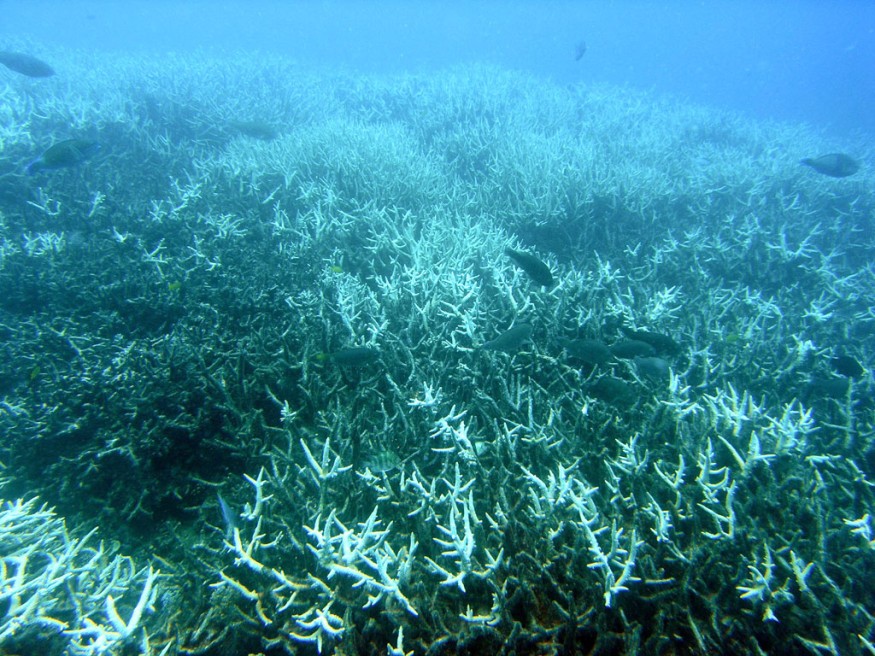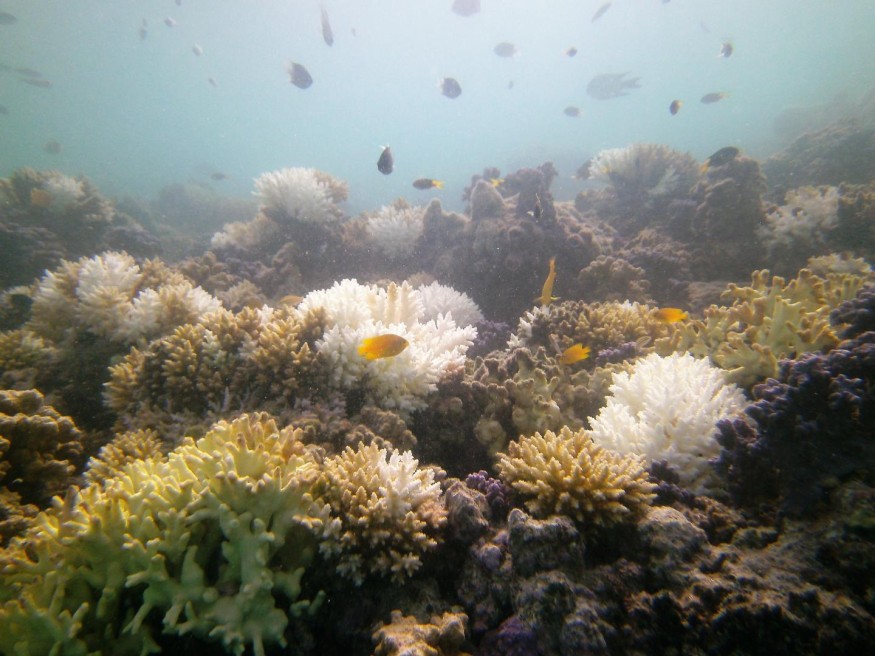Coral reefs have long been thought to be one of the first and most severe ecological victims of global warming.
Marine heatwaves are becoming increasingly frequent due to climate change across the planet. Corals have developed to survive in a specific temperature range, so if ocean temperatures get too hot for an extended time, corals may bleach, losing the colorful algae that dwell within their tissue, feed them through photosynthesis, and eventually die.
According to a new study published in the journal PLOS Climate, the future of these tropical ecosystems, which are considered to contain more species than any other, is likely to be worse than previously assumed.
As the climate has warmed, major bleaching and die-offs have gone from an uncommon event to a more common occurrence in the tropics. The time it takes corals to recuperate is increasing shorter as heatwaves become more common.
Worsening Global Warming

The Intergovernmental Panel on Climate Change forecast that 1.5°C of global warming will result in the extinction of 70 to 90% of the world's coral reefs in a 2018 report.
The team discovered that at 1.5°C of warming, which the world is predicted to reach in the early 2030s without drastic action to limit greenhouse gas emissions, 99 percent of the world's reefs will experience heatwaves that are too frequent for them to recover, using models capable of examining temperature differences between coral reefs one kilometer apart.
This would be disastrous for the hundreds of species that rely on coral reefs, as well as the nearly one billion humans that depend on coral reef biodiversity for their livelihoods and food supplies.
Related Article : Dangerously High Temperatures May Signal Another Mass Bleaching in Great Barrier Reef
Killing Coral Reefs
A heatwave's thermal stress can impact corals throughout a large geographic region, such as the northern Great Barrier Reef or archipelagos such as the Maldives. The Pacific, Atlantic, and Indian Oceans saw extensive bleaching during a marine heatwave in 2015-16.
Corals are tiny polyp-like organisms that generate tens of thousands of colonies by secreting a calcium carbonate skeleton that forms a reef. Corals grow slowly, so recovery from bleaching and die-offs can take a long time, and pollution and overfishing can impede them. Some species develop faster and recover more quickly than others.
Even as surrounding regions warm, scientists anticipate that local circumstances on some reef tracts will provide optimal temperatures for corals in the future. These circumstances might be caused by upwelling, which brings colder water to the top, or by strong ocean currents. These so-called refugia, which provide corals a better chance of survival, might be prioritized by reef managers.
Difficult Task
Unfortunately, finding these refugia is challenging since they are expected to be tiny, and climate forecasts that estimate changes in ocean temperatures over time have a coarse resolution.
They discovered that between 1986 and 2019, 84 percent of the world's reefs provided enough thermal protection. Corals had adequate time to recover between bleaching occurrences due to this.
Only 0.2 percent of these refugia survive after 1.5°C of global warming above pre-industrial levels. Coral reefs will no longer have safe havens from the heat if temperatures rise by 2°C.
Another study's preliminary findings (which have yet to go through the peer-review process) appear to validate the devastating impacts of 1.5°C global warming on coral reefs. Scientists in the United States conducted this study separately, using a different approach but the same climate models and geographical resolutions.
When world leaders signed the Paris Agreement in 2015, they set a goal of keeping global warming below 1.5°C. This goal is becoming increasingly elusive.
There is no safe limit to global warming for coral reefs. Given the current rate of global warming, marine heatwaves are projected to become so common that most of the world's coral reefs will be regularly subjected to severe heat stress. This decade has already seen at least one such incident on most reefs.
Dire Situation

Because heatwaves are not universal, not all locations are affected simultaneously, and not all corals bleach at the same time due to their development form or the type of algae in their tissue.
Nonetheless, the severity and frequency of heatwaves anticipated in this study would most likely harm even resistant coral species, implying that the world's reef biodiversity will be lost. Future coral reefs will likely appear substantially different from the vibrant and diversified ecosystems people are familiar with today.
Coral reefs are already being harmed by climate change across the world. Experts already know that safeguarding the last remaining temperature refuges will not be enough. The best hope for salvaging what is left is to reduce greenhouse gas emissions this decade.
For more Environmental News, don't forget to follow Nature World News!
© 2025 NatureWorldNews.com All rights reserved. Do not reproduce without permission.

